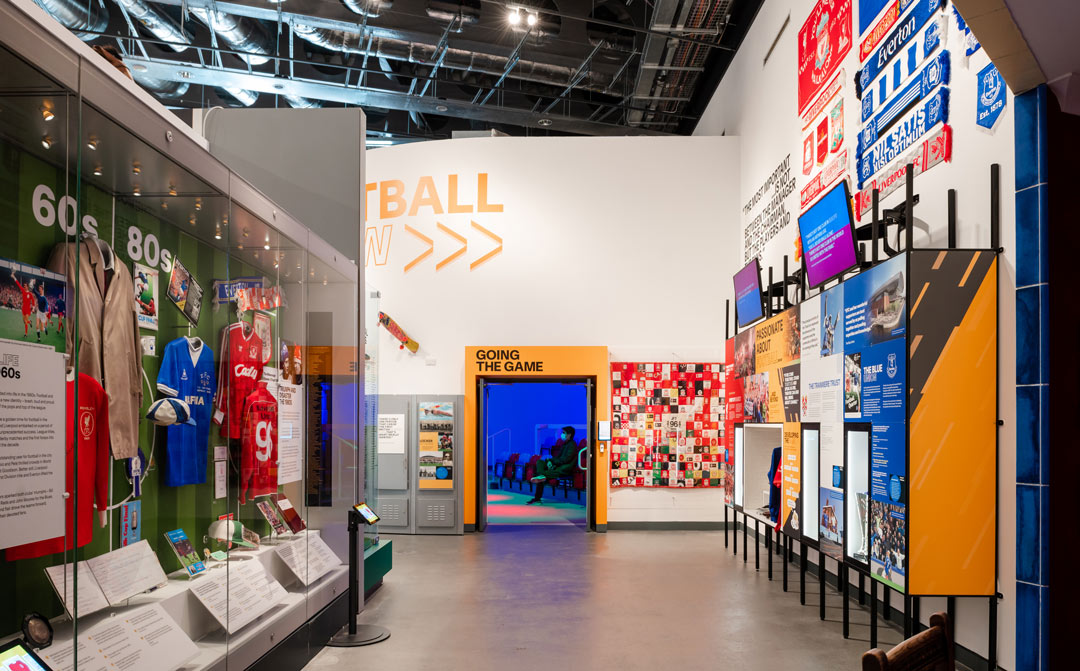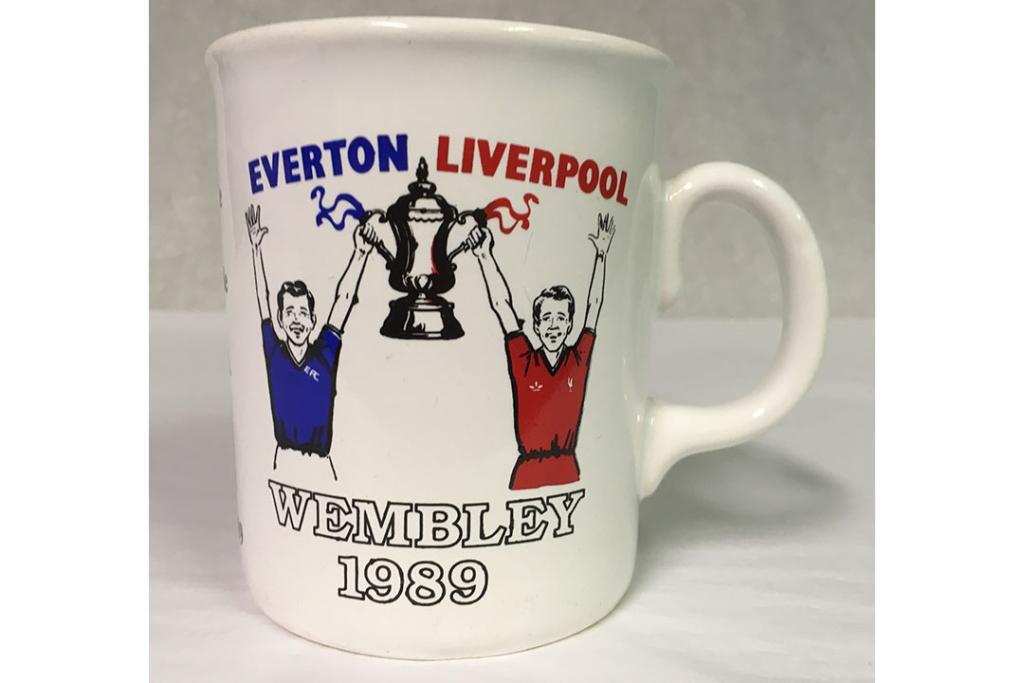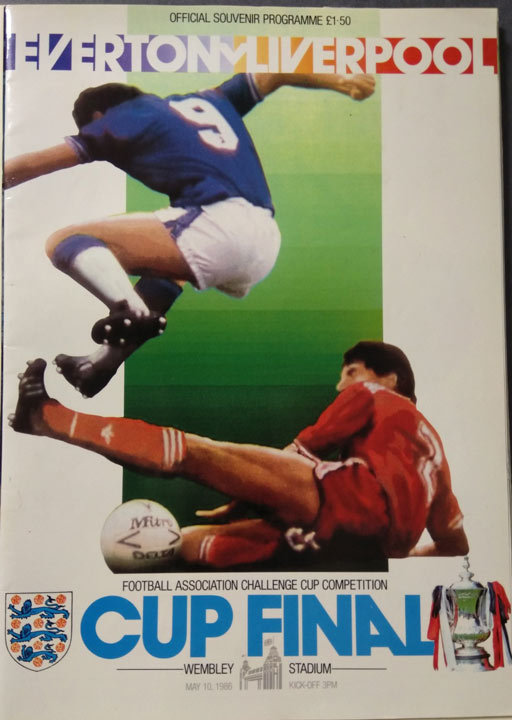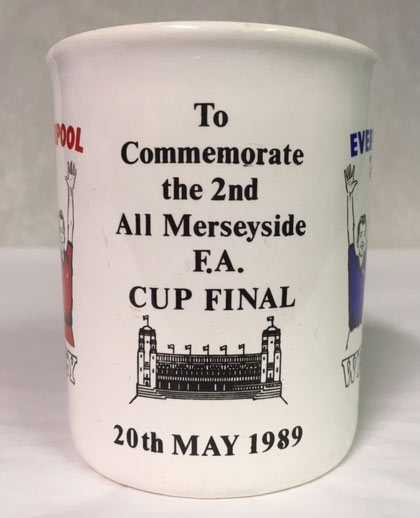
FA Cup Finals in Red and Blue
Liverpool and Everton football clubs have faced each other twice in the Final of the FA Cup. I thought I would take the opportunity to look back at Merseyside’s FA Cup Final experiences and the two all-Merseyside Cup Final derbies.

Everton
Founded in 1878, Everton reached their first FA Cup Final in 1893, the same season that Liverpool, founded in 1892, joined the Football League. Sadly Everton were beaten 1-0 by Wolverhampton Wanderers. However, it was the start of a long and Illustrious FA Cup story for the Blues, as they went on take part in 12 more finals, bringing the cup home to Liverpool five times; in 1906, 1933, 1966, 1984 and most recently in 1995. The 1933 Final was the only one in which Everton legend Dixie Dean took part, scoring one of the three winning goals. This game also saw football teams wearing numbered shirts for the first time, to make player identification easier.
Liverpool
Liverpool were relatively late starters, reaching their first Final in 1914. Like their local rivals, they lost their first Final 1-0, being beaten by Burnley. Liverpool’s form dipped and rose over the following decades. The appointment of Manager Bill Shankly in 1959 saw the club’s fortunes begin to soar. Liverpool played in 13 more FA Cup Finals, winning their first in 1965, after the arrival of Shankly. They brought home the Cup a further six times; in 1974, 1986, 1989, 1992, 2001 and most recently in 2006. The 2001 Final was the first to be held in Cardiff’s Millennium Stadium while Wembley Stadium was being rebuilt, and the 2006 game was the last before the event moved back to Wembley. Can they win the cup an 8th time when they play against Chelsea in the 2022 FA Cup Final?
The first Merseyside FA Cup derby in 1986

Souvenir programme from the 1986 FA Cup Final match between Everton and Liverpool.
On 10 May 1986, 98,000 fans filed into Wembley Stadium to watch the two teams meet for the first time in an FA Cup final. Many had travelled down together from Merseyside and fan segregation was not strictly enforced as families and friends, often with mixed allegiances, stood or sat side-by-side to support their teams. The souvenir programme we have in our collection was donated by one of those fans and the contents make for interesting reading. I was surprised to see a full page advert for cigarettes in a sports programme – not to mention the advert for whiskey running across the centre pages under the team listings. We certainly live in different times today.
Both teams were top flight, but it was a meeting of the giants in more ways than one, as the manager of the Blues, Howard Kendall, led out his team against the Reds player/manager Kenny Dalglish. Initially the game looked as if it would not live up to expectations, with Everton dominating the first half and Liverpool struggling to find their feet. The Blues had a 1-0 lead at half-time, courtesy of striker, Gary Lineker. However the second half was a complete turn-around, with goals from Liverpool’s Ian Rush and Craig Johnston and then another from Rush, the final result was 3-1 to Liverpool.
1989, in the shadow of Hillsborough

Souvenir mug from the 1989 FA Cup Final match between Everton and Liverpool.
The next time the two Merseyside teams met in an FA Cup Final, on 20 May 1989, the event was shrouded in sadness. The Final was played just five weeks after the tragedy at the Hillsborough semi-final, between Liverpool and Nottingham Forest, which resulted in the deaths of 96 Liverpool fans. Rivalries and allegiances were put to one side as Reds and Blues alike came together at Anfield in the days after the tragedy, to lay flowers, scarves and flags in tribute to those lost. The events at Hillsborough had undoubtedly cast a shadow over the Cup Final, with supporters’ celebrations more subdued. On the pitch, both teams wore black armbands to show respect. There was a minutes’ silence before the start of the game and Gerry Marsden led the crowd of almost 83 thousand, in a heartfelt version of his song You’ll Never Walk Alone.
Just four minutes into the game, John Aldridge gave Liverpool the lead, which they kept throughout the match. In the last minute of the game, when it looked like they would walk away with the Cup, Blues substitute, Stuart McCall equalised. The crowd did quite literally go wild, but their glee was short lived. In extra time, Ian Rush, the Liverpool hero of the previous derby Cup Final, gave the Reds back the lead. McCall again scored an equaliser and the tension grew. Finally, 14 minutes into extra time, Rush scored a second and Everton’s chances of winning the second FA Cup Final derby were over.
Although both teams have seen FA Cup Final action since, they have yet to meet again in another Cup Final.
Wondrous Place
The story of Liverpool's football teams and the fans who support them is told in the Wondrous Place gallery at the Museum of Liverpool.

